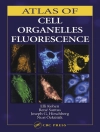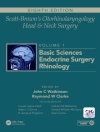Inflammation in gastrointestinal mucosa can remodel the topography of the overlying epithelium. If such inflammation is chronic, it has fundamental clinical consequences, the principal of which is premalignant metaplasia throughout the alimentary tract. Furthermore, mucosal inflammation, even if subtle, is the single most common pathway for GI cancer.
This book discusses all aspects of the relation between inflammation and GI cancer, from the basic science through to the translational science which is helping in the optimization of clinical management strategies. Among the topics considered are the impact of inherited syndromes; the roles of acid reflux, H. pylori, inflammatory bowel disease, and primary sclerosing cholangitis; screening strategies; targeted drug therapies; genetics; and the use of endoscopic methods. The authors are the best in their field, and this book is designed for the enthusiastic student as well as the professional in GI science and medicine.
Содержание
Basic concepts of inflammation and its role in carcinogenesis.- Inherited syndromes predisposing to inflammation and GI cancer.- Stem cell biology and mucosal inflammation.- Acid reflux and esophageal cancer.- H Pylori and gastric cancer.- Inflammatory bowel disease and colon cancer.- Liver cancer.- Current screening strategies.- Targeted drug therapies and cancer.- Genetics of inflammation in the GI tract and how it can cause cancer.- Endoscopic methods.












